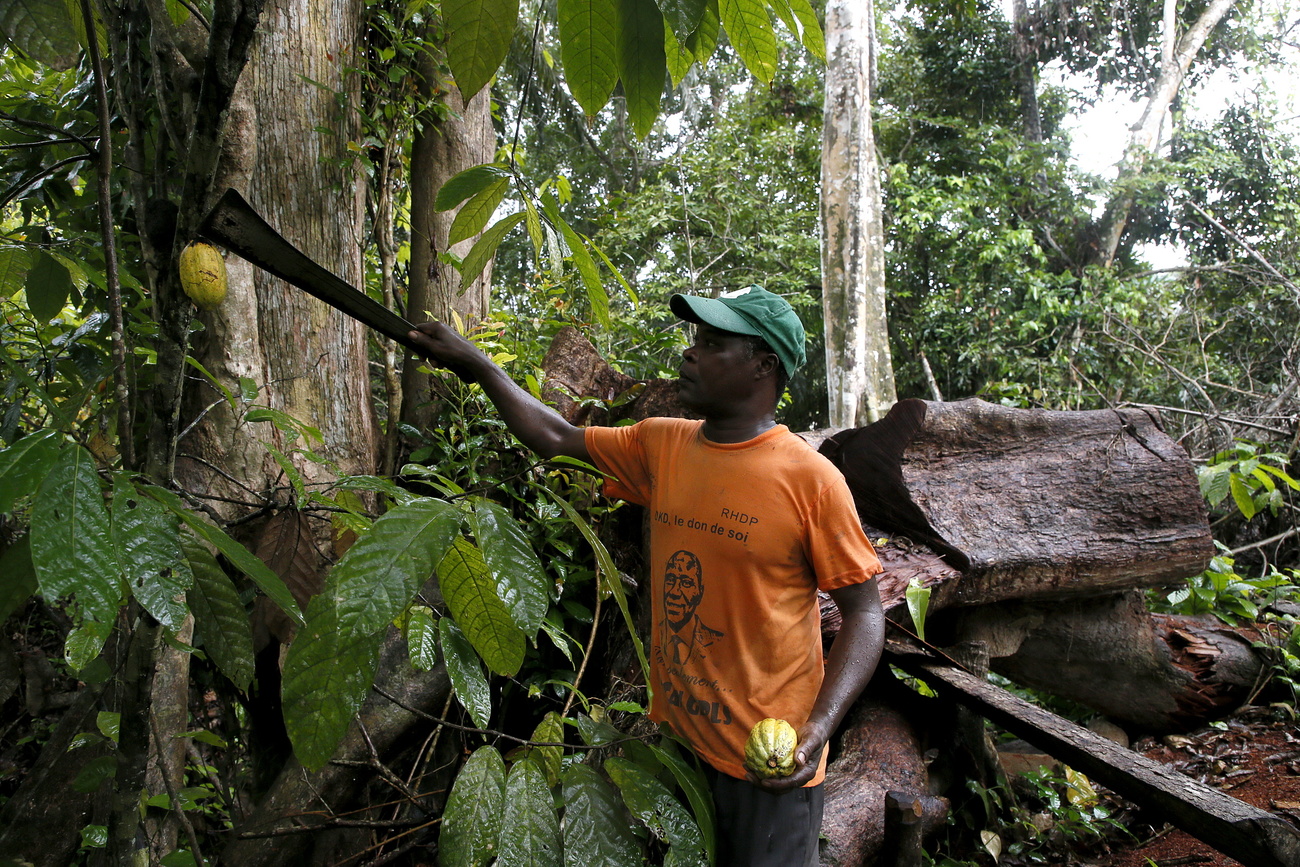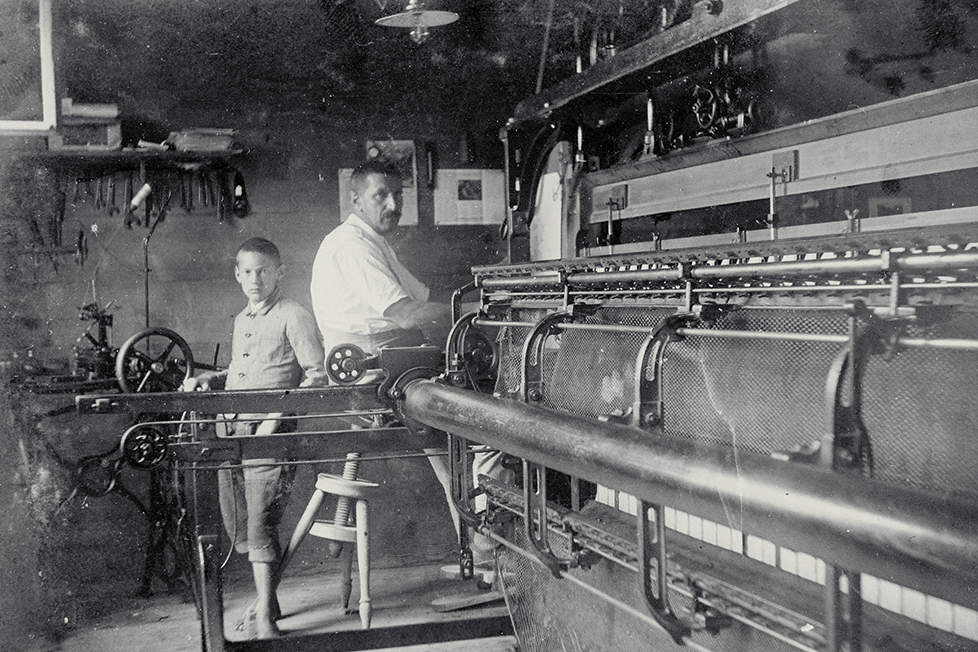子供がやっても良い仕事があるとしたら、それは何ですか?
搾取や強制労働はよくありませんが、児童労働が悪いとは思いません。
経験は後に役に立つことばかりです。近代化した国の価値観だけで物事を考えることはとても危険だと思います。児童労働のものを買わないというだけでは貧困は無くなりません。農業でも物作りでもキャリアにつながる仕事であれば良いのではないでしょうか。もちろん学びの場や時間を作れれば尚良いと思います。
子育て。
日本では、子供を育てられない大人が増えている。また、少子化が進んでいる。
それは、子供の時に勉強ばかりして、兄弟と遊んだり、他の子供と遊んだりしなくなっているから。
子育ては、子供だけでは無理だけど、大人のサポートがあればできる。
子どもの場合、「仕事」という言葉は少し重い気がします。私は、幼い頃から子どもたちが自分のすることに責任を持つことに賛成で、それを実行するのは両親以外にありません。どんなことがあっても、それはある種の苦しみや学校生活の損失を意味するものであってはならない(私は教育について話している)。しかし、そう遠くない将来、より厳しい規則に従って生きるために、指示された機能を発揮することを学ぶことは重要である。
No caso de uma criança a palavra "trabalho" me parece um tanto pesada. Sou a favor da criança desde cedo ter responsabilidade sobre aquilo que faz e nada melhor que os pais para exercerem tal tarefa. Em hipótese alguma deve ser algo que implique algum tipo de sofrimento, perda de dias de escola (falo em educação) porém é importante que elas aprendam a exercer uma função dirigida para num futuro não muito distante viver de acordo com regras mais rígidas.
スイス人が児童労働について語るのは、いつも少しおかしいと思う。
非常に貧しい国では、多くの人が生死の境をさまよっています。子どもを働かせることで、この悲惨な状況が改善されるのであれば、児童労働を支持します。貧困は根本的な原因であり、児童労働は結果に過ぎません。貧困が根絶されない限り、児童労働はなくならない。
豊かな国では、すべての人に基本的な生活が保証されています。私は児童労働に反対します。もちろん、お小遣い稼ぎのために家でアルバイトをしている子供たちは別ですが。
总觉得瑞士人谈童工问题有点滑稽。
在非常贫穷的国家,很多人生活在生死边缘。如果让孩子工作能改善这种悲惨状况,我会支持使用童工。贫穷是根源,童工现象只是结果。贫穷不消除,童工就不会消失。
在富裕国家,所有人的基本生活都有保障。我会反对使用童工。当然,孩子在家干点零活,赚零花钱例外。
どんな仕事でも、それが教育の一環である限り、子供にとっては良いことです。5歳のとき、私は学校に行く前に毎日ゴミ箱を道に置く責任がありました。10歳の時には、週に2回、自分の部屋を完全に掃除して、学校に行く前にベッドを完璧にする責任がありました。それができないと、両親からテレビでロシアのアニメを見るように言われ、それは本当の拷問でした。15歳になると、ガールフレンドと一緒にパーティーに行くためには、すべての義務(これは飛躍的に増加した)を果たさなければならない。PCゲームをする時間はありませんでしたが、義務的に2時間の良い本の講義を受けていました。
Any work is good for kids as far it is part of their education. At 5, I was responsible to put the garbage bin at the street each day before going to school. At 10, I was responsible for the full clean of my room twice a week and to let my bed impeccable before going to school. If I do not make my job, my parents will force me to see the Russian Cartoons at the TV, and that was a real torture. At 15, I need to make all my duties (which increased exponentially) if I want to go partying with my girlfriend. There were no time for PC Games, but an obligatory 2 hours of good book lectures.
また、なぜロシアのアニメがあんなに嫌いだったのでしょうか?
И чем же Вам так не нравились Российские мультфильмы?
おそらく品質でしょう。
Вероятно, качеством.
私は、子供たちが親の仕事を短期間手伝わなければならないのであれば、それは構わないと思いますが、子供たちが時に嫌な状況下で産業界でフルタイムで働き、家族を養わなければならないのであれば、それは子供たちの健康、教育、そして子供時代全般を犠牲にするものであり、あってはならないことだと思います。
Ich denke wenn Kinder mal in einem elterlichen Betrieb für eine kurze Zeit aushelfen ist das okay, aber wenn Kinder in den Industrien vollzeitig unter teils widerlichen Umständen arbeiten müssen und die Familien ernähren geht das auf Kosten deren Gesundheit, Ausbildung und Kindheit generell und sollte nicht sein.
家族の一員として溶け込み、自分に価値があると感じられるような場所。生涯にわたって何かを学び、他の興味を呼び起こして、将来の職業や方向性を選択できるような仕事です。 何もしないで、たとえ一日中iPadやゲーム機ばかり使っていても、すべてを手に入れなければならないと考えるのは、絶対に間違っています。私は、今の世代よりも前の世代の方が、将来に向けて安定した準備ができていると考えています
Jene wo sie sich als teil der Familie integrieren können und das Gefühl erhalten, das sie auch was wert sind. Jene Arbeiten wo sie was für das Leben lernen und was Ihnen hilft auch andere Interessen zu wecken um vielleicht den zukünftigen Beruf oder die Richtung auswählen können. Nichts zu tun und zu meinen sie müssten alles bekommen auch wenn sie nur den ganzen Tag am iPad oder an der Spielekonsole hängen ist bestimmt falsch. Ich sehe die früheren Generationen viel gefestigter und gewappnet für die Zukunft als die jetzige Generation!
良いと思いますよ。
私と私の姉妹は、子供の頃から家族の農場で働いていました。たくさんのことを学び、大人になってからのキャリアも保証されています。
また、学校でも多くのことを学びました。私は植物や栽培などの農業に興味がありましたが、2人の姉はトラクターや水システムなどの機械的な部分に興味がありました。
子供の頃の仕事の経験があるからこそ、私たちは良いキャリアを積むことができるのです。都会の他の若者にはこのような機会はないでしょう。
I think it is good.
Me and my sisters have been working on the family farm since we were children. We learned a lot and it guaranteed we have a career as adults.
We also learned a lot more in school. I was interested in agriculture like plants and growing, while my two sisters were more interested in the mechanical part like with tractors and water systems.
With our work experience as children we have a good career ahead of ourselves. Other young people in the city will never have this opportunity.
多国籍企業に有利な、道徳的・倫理的に破綻した議論です。 これこそが、この世界の問題点なのです。これらのコミュニティを向上させ、中間業者を減らし、農家にもっとお金を払って、適正な賃金で適切な労働力を雇えるようにしてはどうでしょうか。現在の状況では、子供は人生をより良く生きることを永遠に否定されています。私たちは皆、たとえ第三世界の国であっても、より良い生活を手に入れたいと願っています。
It is a morally and ethically bankrupt argument, that favours multinationals. It is ultimately what is wrong with this world. How about uplifting these communities and have less middlemen and pay more to the farmers so that they can employ proper Labour at a fair wage. The child is eternally denied a better shot a life under the present status quo. We all aspire to have a better life even in a third world country.
子供たちが働くことは、健康を害さず、奴隷にならないのであれば、良いことです。私たちの世代がお小遣いを欲しがったとき、ほとんどの人はそのために働かなければなりませんでした。私は5歳のとき、農家にしばらく滞在したことがあります。彼らの子供たちにとって、手伝うことは当たり前のことで、私もそうでした。さくらんぼを摘んだり、じゃがいもを拾ったり、刈り取った草を乾かした後にかき集めたり。後になって、ミグロスが包装に使う新聞紙を1キロあたり50セントで売っていることを知りました。近所の新聞を集めて、広げて、重ねて、紐で縛って......と、かなりの時間がかかりました。しかし、私たちは自分たちの成果を誇りに思っていました。我が家では、デコレーターがアトリエを構えていました。些細なことや用事を手伝ってくれました。釘の打ち方や布の縫い方を教えてくれたり、たまにクロワッサンやアイスクリームを買ってくれたりしました。
Letting children work is a good thing, providing it does not harm their health and does not mean slavery. When my generation wanted some pocket money, most of us had to work for it. At age five, I had lived for a while with a farmers family. For their kids it was normal to help and so it was for me. Plucking cherries, picking up potatoes or raking the cut grass once dried. Later on, we found out that Migros paid 50 cents per kilo of newspaper rolls that was used for wrapping. It took a lot of time to collect the papers in the neighborhood, unfolding, laying sheet on sheet and making the rolls fastened with a string. However, we were mighty proud of our achievement. In our house, a decorator had his workshop. Helping with small things and errands. He taught me how to hammer in a nail or stitching on cloth and occasionally paid for a croissant or an ice cream.
ゲーム自体を分解し、監督のもとで修理し、この作業に参加させるため
ان يقوموا بتحطيم العابهم بانفسهم , واعادة اصلاحها باشرافهم , واشراكهم بهذا العمل
あなたの参加にようこそ。この文脈で意味されるのは有給の仕事です。子どもにできる有給の仕事はありますか?
أهلا بمشاركتك، المقصود في هذا السياق هو العمل مدفوع الأجر. هل هناك عمل مدفوع الأجر يمكن للأطفال ممارسته؟
いいえ、私たちの仕事に注意を向けるために、彼らを仕事に参加させてください。支払いは彼らを助けてくれてありがとうとして寛大であり、支払いはしません。子供の頃の侮辱として働いているという子供の気持ち。
لا - فقط إشراكهم في عمل لجلب اهتمامهم فيما نعمل، أما الأجر فاكرامية كشكر على مساعدتهم وليست أجرا . إحساس الطفل أنه يعمل باجر إهانة للطفولة.
そうです。かつてアメリカでは、働きたいと願う子どもたちが働いていました。それが今では許されない。昔は農作物の収穫をしていましたが、それが好きな子もいました(私はそうではなく、勉強以外のスポーツに専念することを選びました)。安全な環境で、子供たちがやりたがっているなら、やらせてあげればいいのです。
Yes! Children who desired to work used to do so in America. Now, they're not allowed to. They used to harvest crops, which some loved doing (I did not, and I chose instead to concentrate on sports outside of my studies). If the conditions are safe and the kids want to, LET THEM.
親が認めた仕事なら何でもします。学校も仕事ですが、お金はもらっていません。頼んだわけでもなく、お金を払ったわけでもありませんが、仕事はあります。
私は3人の子供を持つ母親ですが、学校で無駄な時間を過ごす代わりに、喜んで彼らを無駄のない仕事に就かせていたでしょう。もし、10歳から23歳までの子供たちが半分の時間を働き、半分の時間を仕事を学んだり、いくつかの言語を学んだり、料理や会計のような役に立つスキルを学んだりするような、きちんとした役に立つ学校教育に費やしてくれれば、これらの世代は学校の借金でいっぱいになることなく、本当のスキルを身につけることができるでしょう。
今日、私たちは30代まで博士号取得に時間を費やす子供たちを育てていますが、彼らは決して返すことのできない学費を借りています。彼らを借金の奴隷にしているのです。
Any and all work deemed acceptable by their parents. School is also work except they do not get paid for it. They did not ask for it, they did not pay for it, but it is there and it is mostly done to keep the teachers with jobs so they are not unemployed.
This comes from a mother of 3 and I would have gladly sent them to lean to do a proper job instead of half the time wasted in school. If between the ages of 10 and 23 children would work half the time and spend half of the time on proper useful schooling like learning a job, learning some languages and learning useful skills like cooking and accounting then these generations would not be full of school debt and would have real skills.
Today we're raising children who until their 30s spend time on PhDs in schools loaning money for school they can never pay back. We're making them slaves to debt.
母親であることも大きな仕事であり、その対価としてお金をもらっているわけではありません。
35歳の博士号取得者よりひどいのは、実家でゲーマーをしている35歳の人たちだ。仕事とは、子供を教育するための完璧なツールなのです。
To be a mother is also a huge work and they don't get paid for it!
Worse than those 35 years old PhD students are the 35 year old gamers in their family home. Work is a perfect tool to educate children.
西洋社会では、子どもは守られなければならないと学んできましたが、私たちの歴史においても子どもの役割は同様であり、経済発展の一部であったという事実を無視することはできません。
困難な時代には、小さな家族経営の農場やビジネス、産業も、子どもを含むすべてのメンバーの参加なしには生き延びることができませんでした。
今日、私たちが確実にしなければならないのは、家族を支えるために働くことが搾取や奴隷にならないようにすること、そして学校教育がどのような組み合わせにも必ず含まれるようにすることです。
While we in Western societies have learned that children must be protected, we cannot ignore the fact that the role of children in our own history was similar and as much a part of our economic progress.
In difficult times, small family farms, businesses, even industry could not have survived without the participation of all members, including children.
What we have to ensure today is that working to support family does not become exploitation/slavery and that schooling must always be a part of any mix.
さすがにそんな単純な問題ではありません。国が18歳まで学校を無料で提供していない地域でも、単純に児童労働を禁止することはできません。すべての児童労働を断罪する前に、地域の状況を見なければなりません。
一般的には、農業などの家族経営の企業での児童労働は許容されるべきだと思います。学校教育が受けられるのであれば、子どもたちは学校に通うのが望ましいと思います。
This is indeed not such a simple question. We cannot simply prohibit child labour even in locations where the state does not offer free schooling until age 18. Before condemning all child labour therefore we have to look at local conditions.
Generally speaking I would say that child labour in family businesses; be it agricultural or otherwise, should be acceptable. If schooling is available it would be preferable for children to attend schools.
では、親にその学費がない場合、誰がその学費を負担するのでしょうか。
私の妹は、学校行事や家庭監督の費用をすべて負担し、なおかつ同時に働けるほどの収入がないため、子どもを学校に通わせる余裕がありません。 あなたは彼女が子供を学校に行かせるためにお金を払ってくれるのでしょうか?
みんな文句を言うのは好きですが、誰もそういうことにお金を払って協力しようとはしません。私の姉の選択は、夫と一緒に農場と家を持つ余裕のあるイタリアの田舎に移住することでした。子どもたちは夕方からオンライン授業をして、昼間は農場で働くだけ。
So who will pay for that schooling if the parents do not have the money for it?
My sister cannot afford to send her children to school as they do not make enough money to pay for all the school activities or home supervisors and still work at the same time. Will you pay for her to send the children to school?
Everyone loves to complain but nobody is willing to pay to help with those things. My sister's choice was to move to a rural area in Italy where she and her husband afforded a farm and a home. The children just do online classes in the evening and work at the farm during the day.
彼らにノウハウと力があれば何でもできる。学校でライフスキルの授業を行うべきだと思います。多くの子供たちは、学校を出た後の生活に対処する方法を全く知らずに学校を出てしまいます。私は実家にいたとき、お小遣いをもらって家事をしていました。自分の家を持ったときには、お金の管理、料理、お菓子作り、洗濯、アイロンがけ、飾り付け、ガーデニング、その他の家事、さらには重労働のDIYなどの方法をすでに知っていました。つまり、他の人に頼る必要はほとんどありませんでしたが、中には奴隷である私に頼りすぎる傾向のあった女友達(今は元)もいました。
Anything they have the know-how and strength to do. There should be a life skills course at school. Many children leave school with zero idea of cope with life after they leave. When I was at home, I did housework in return for pocket money. When I got my own place, I already knew how to manage my money, cook, bake, do my laundry, ironing, decorating, gardening, other housework and some more heavy duty DIY. This means I have rarely had to rely on anyone else to do things, though some of my girlfriends (now ex) tended to rely too heavily on me, the slave.
学校は、すべての子どもたちを受け入れるだけの場所を持っていません。 これが1つ目の問題です。 児童労働の研究者は、児童労働は問題ないと主張しています。なぜなら、これらの子どもたちのほとんどは、どうせココで働くことになるからです。 研究者さん、学校がないと自己実現の予言になってしまいますよ。
今回のテーマである「児童労働はそんなに悪いことなのか? はい、悪いことです。私はそれを経験しました。 誤解しないでいただきたいのですが、(必要に迫られてではなく)選択として働くことは、いろいろな意味で価値があります。 多くの人が理解できないのは、給料が存在しないということです。 この子たちは自分のためにお金を稼いでいるのではありません。 親のためにお金を稼いでいるのです。 それゆえ、より大きな問題がすでに存在しているのです。 そして、児童労働はその問題の解決策ではありません。
また、1トンあたり400ドルの追加料金を支払うこともできません。 学校はどうだろう? 食糧と健康プログラムはどうでしょうか? 基本的なニーズが満たされていません。 そこから始めましょう。
Schools do not have enough places to accept all children. There's the first problem. The child labor researcher argues child labor is ok, because most of these children will end of working cocoa anyway. Pssst, Mr Researcher, it's a self fulfilling prophecy, if there are no schools.
As for the topic, Is child labor really that bad? Yes, it is. I've done it. Don't misunderstand me, working as a choice (not a necessity) can be valuable in many ways. What most fail to understand is, the pay is non-existent. These kids are not making money for themselves. They are making money for their parents. Hence, a larger problem already exists. And child labor is not the solution to the problem.
Nor is paying $400 per ton, extra. How about some schools? How about a food and health program? The basic needs are not being met. Start there.
コメントをお寄せいただきありがとうございます。あなたが子供の頃、どんな仕事をしていたか教えてください。それは自発的なものでしたか、それとも強制的なものでしたか?
Thanks for your comment. Can you share what work you did as a child? Was it voluntary or were you compelled?
短い答えです。レストランの仕事、主にキッチン。必修。給料は出ない。鋭い包丁、熱いオーブンやコンロ、熱い油、焼き網。熱湯は、水が当たると冷めるので、跡が残らないので気にならなかった。 食器洗浄機は食器を82℃まで持ってきます。 私たちはそれを機械から直接扱いました。 それが通過儀礼だった。 すべてがそうだった。
答えが長くなりました。父はバーやレストランを経営していました。 私はそこでビジネスのあらゆる面で働き、年齢が上がるにつれて責任が増していきました。 牛乳箱を使えば、8歳の子供でも食器洗い機に手が届きます。 9歳の時にはビールやお酒を注ぎました。 10歳のときには、バーのスツールに座ってレジを覚えようとしました。 12歳のときには、夏休みのランチシフトを担当しました。 私は常に学校に通い、放課後にはスポーツをし、学校のイベントや活動に参加していました。 成績も優秀でした。 しかし、自由な時間とはレストランにいる時間を意味していた。 それはそれで仕方のないことだったのです。 ナイフ、オーブン、グリル、火......すべてを経験し、それを証明する傷跡もあります。 16歳で運転免許を取得した私は、主に厨房を担当していました。 バーテンダーは、自分も含めて何も燃やせないので、一番好きな仕事でした。 21歳以下でバーテンダーをすることは違法ではありませんでしたが、酒査察官の存在だけが心配でした。 私はドアを開けて入ってきた人たちにサービスを提供しました。 毎日、焼きたてのパンやピザの生地を作っていました。 エビの皮を剥き、フライドポテトを切り、パスタソース、ミートボール、ソーセージ、スープなども自分たちで作りました。 75人が座れる店で、多いときには120人をもてなした。 忙しい金曜の夜に寝ると、朝の4時まで料理をしている夢を見るのです。 この夢は、私の料理人生が終わった後も何年も続きました。 厨房の営業時間は午前11時から午後11時まで。 私はボックスから現金を取り出し、午前1時にはバーの人々に家に帰るように言いました。 私はボスであり、誇りであり、何も知らなかったのです。 給料は払われませんでした。 私は17歳で家を出て、別の町の別のレストランで仕事をしましたが、そこではもっと低い給料しかもらえませんでした。 二度とレストランで働かなくてもいいように、大学に進学しました。 今でもそうです。
この状況の根本的な問題は、学校や栄養、医療の不足ではありませんでした。 根本的な問題は、アルコール依存症だったのだ。 そのことを知ったのは数年後だった。
私の友人たちは、若い頃、家業で働いていました。 彼らはお金をもらい、好きなように貯めたり使ったりしていました。 働きたいときに働き、必要なときに働けと言われた。 このような状況では、何の害もないし、いくつかの利点もあると思う。 もし、児童労働を正当化したいのであれば、この記事に書かれている状況とは大きく異なることを明確にしておきましょう。
必要に迫られて行う児童労働と、自分の意思で行う児童労働は別物です。 必要に迫られての児童労働と、自ら望んでの児童労働は別物であり、その場合でも本人の知らない問題が潜んでいる可能性があります。 また、強制的に働かされているというのも別の側面です。 児童労働の問題は、自分の意思でお金のためにやっているのか、必要に迫られて強制的にやっているのか、収入を得られないのかということに尽きると思います。 私が言いたいのは、根本的な問題があるのであれば、児童労働は解決策ではないということです。 そして、その問題に対処する必要があるということです。
Short answer: Restaurant work, mainly kitchen. Compulsory. Not paid. Sharp knives, hot ovens and stoves, hot grease, grills. Boiling water was not a concern, because water cools off when it hits you, and it doesn't leave a mark. Dishwashers bring dishes to 82C. We handled them straight from the machine. It was a rite of passage. All of it was.
Longer answer: My father owned a bar/restaurant. I worked there in all aspects of the business, increasing responsibilities as my age progressed. Milk crates enable an 8 year old to reach the dishwasher. I poured beer and booze by age 9. I insisted on learning the cash register by age 10, perched on a bar stool. At age 12, I began running the kitchen lunch shift during Summer break. I should note, I always attended school, played after school sports, and participated in any school event or activity. I earned excellent grades. However, free time meant time at the restaurant. That's how it was, and it was not an option. Knives, ovens, grill, fire, I experienced them all and have scars to prove it. By 16, with a driver's license, I was running the place, mainly working the kitchen. Bartending was my favorite job, because I couldn't burn anything, including myself. There was nothing legal about bartending below the age of 21, but only the liquor inspector's presence caused concern. I served anyone and everyone that walked through the door. We made dough every day, for fresh bread and pizzas. We peeled our shrimp, cut our own french fries, made our own pasta sauces, meatballs, sausage, soups. We could seat 75 people, and we served 120 on a busy night. Sleeping after a busy Friday night, the result is, dreams of cooking until 4am. These dreams lasted for years, long after my cooking days ended. Kitchen hours were, 11am-11pm. I cleared the cash out of the box, and told the bar crowd to go home, at 1am. I was a boss, I was proud, I didn't know any better. I was not paid. I left home at age 17, and got a job, in another town, in another restaurant, that paid me to do much less. I went to college so that I would never have to work in a restaurant again. Nor have I.
The underlying problem in this situation was not the lack of schools, nutrition, medicine. The underlying problem was alcoholism. I learned that years later.
I should note, friends of mine worked in their family businesses during their young years. They were paid money, saved or spent their money as they wished. They worked when they wanted to work, or were asked to work when needed. In these conditions, I see no harm, and I see several benefits. If one is looking to justify child labor, then let's be clear and note that this situation is far different than what the article described.
Child labor due to necessity is one thing. Child labor by choice is another, and even that can have underlying issues unknown to the child. Being forced to work is yet another aspect. I suppose the question of child labor comes down to doing it by choice and for money, or doing it by need or force and not keeping the earnings. The point I make is, if there is an underlying problem, then child labor is not the solution. And the problem needs to be addressed.
働く子どもとしての経験を話してくれてありがとう。あなたは、子どもたちが家族のために(多くの場合、無給で)働くことで、本当に経済的・物質的な利益を得ているのかという重要な点を指摘しています。これが、子どもの仕事と児童労働の違いになるかもしれません。
Thanks for sharing your experience as a working child. You raise an important point of whether children really reap any financial/material benefit from working (often for no wages) for their families. This could make the difference between children's work and child labour.
親愛なるアナンドさん、もしも(子供が)自分の家族の経済的・物質的な利益のために働かなければならないとしたら、親は親としての義務を果たしていないことになります。
子供は自分の家族のために「ただで」働くものです。ポイント
Dear Anand, if one (child) has to work for financial/material benefits in their own family, then the parents have failed in their duty as parents.
A child would work "for free" for their own family. Point.
学校の時間外で、強制的ではなく、大人と同じように保護具をつけていれば、子供も家業を手伝うことができると思います。
Outside school hours and not forcefully i think children can help with family business given all protective gear as adult would.
コメントありがとうございます。学校がない地域や、先生がほとんど、あるいはまったく来ない地域ではどうでしょうか? これは、世界の多くの地域で見られる残念な現実です。
Thanks for your comment. What about in areas where there are no schools or where the teacher rarely or never comes? This is an unfortunate reality in many parts of the world.
中国のように子供の数を制限すると、子供が5人以上になっても養う手段がなく、労働者の虐待につながるので、学校の定員数を数えた人はいるだろうか。
I wonder if anyone counted how many places in school they have and if that would be enough if some restrictions were applied like in china about how many children they allowed to have because otherwise they are getting 5 and more with no means to support them leading to work abuse.
確かに、子どもが多いと生活が苦しくなります。しかし、西アフリカの出生率は、1980年代には7人前後だったのが、現在は5人以下にまで低下しています。出生率は、現場の社会経済的状況を反映しています。
Yes, having many children does make it tougher to make ends meet. But birth rates have been falling in West Africa from around 7 children in the 1980s to under 5 today. Birth rates are reflective of the socio-economic conditions on the ground.
笑さんへ、中国に関するあなたのコメントは少なくとも20年は古いです。 中国の現状を調べてみてください。
Dear LOL, your comment about China is at least 20 years outdated. Please look up the current situation regarding China.
ああ、今あるとは言っていないが、そういうものを実装するのは悪いアイデアではないと言っている。
Yeah, i am not saying they have it now, i am saying it is not a bad idea to implement something like that



この記事にコメントする